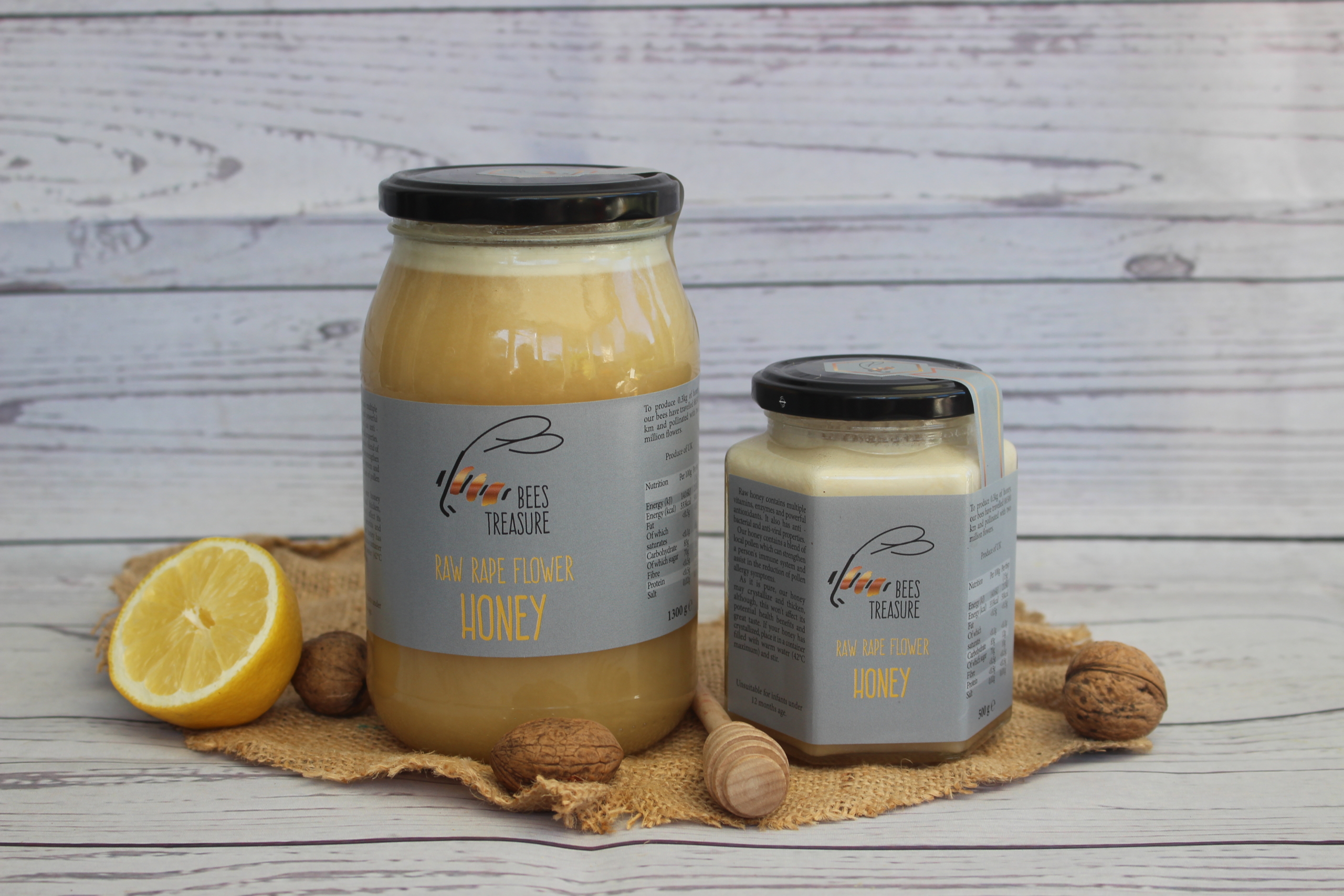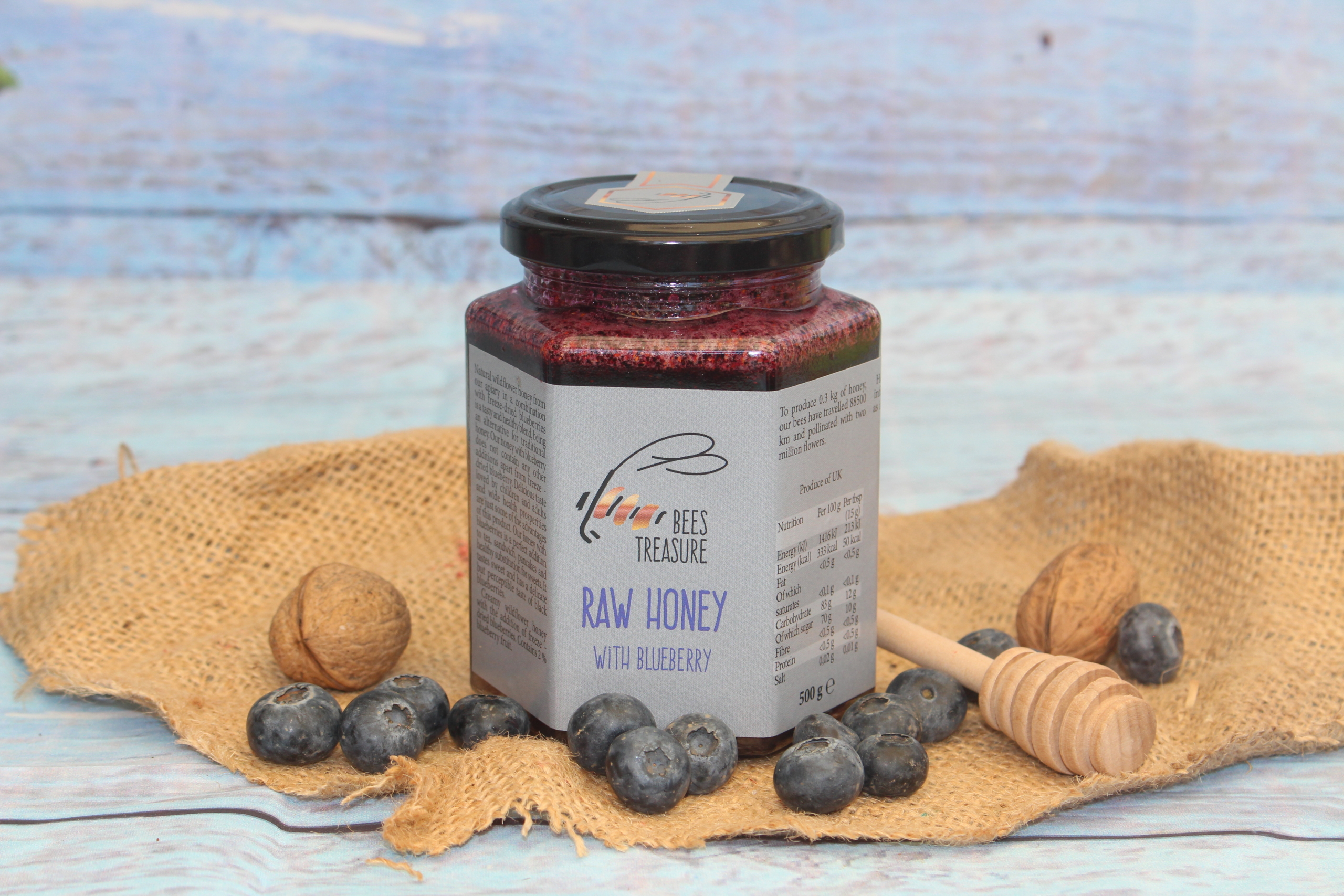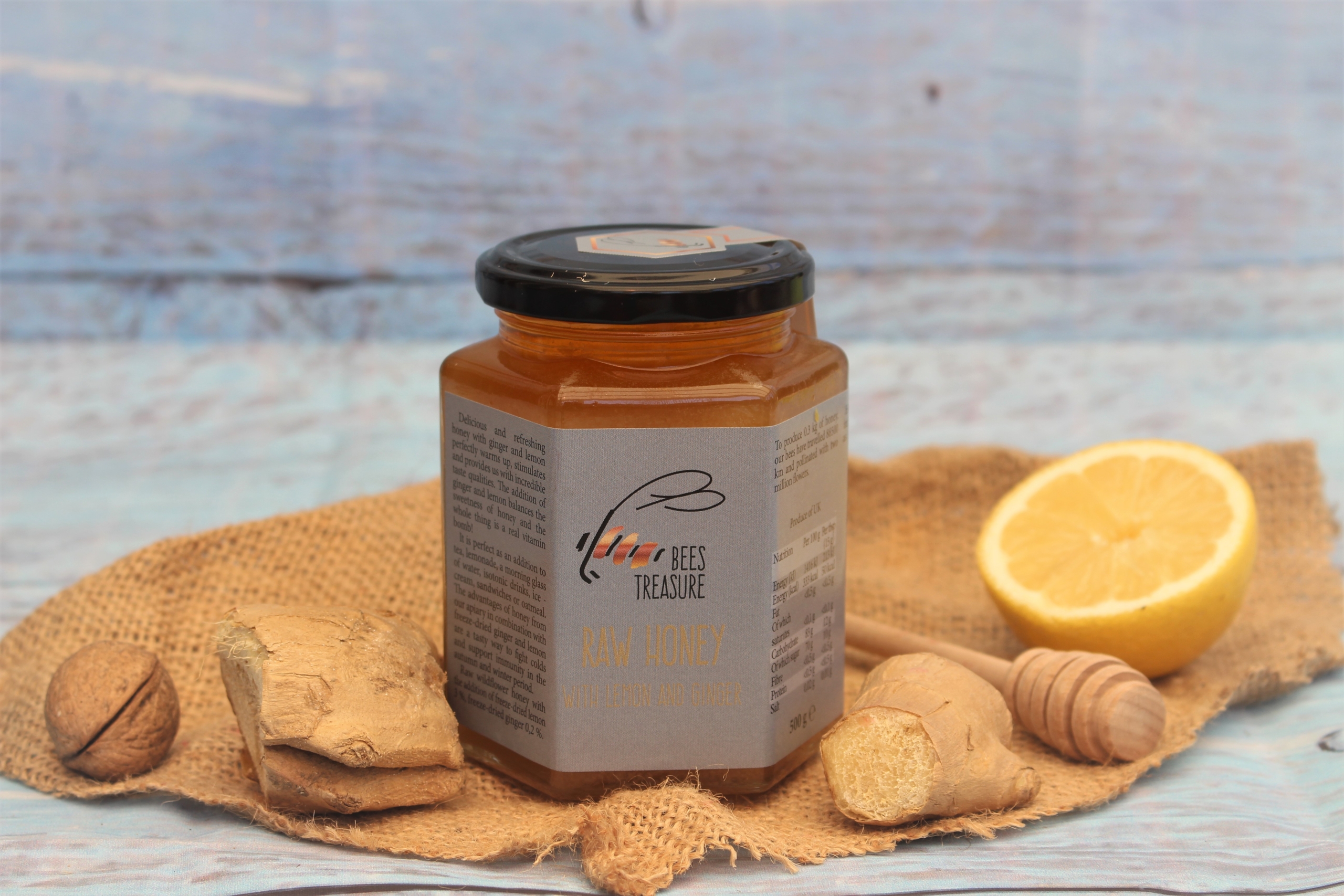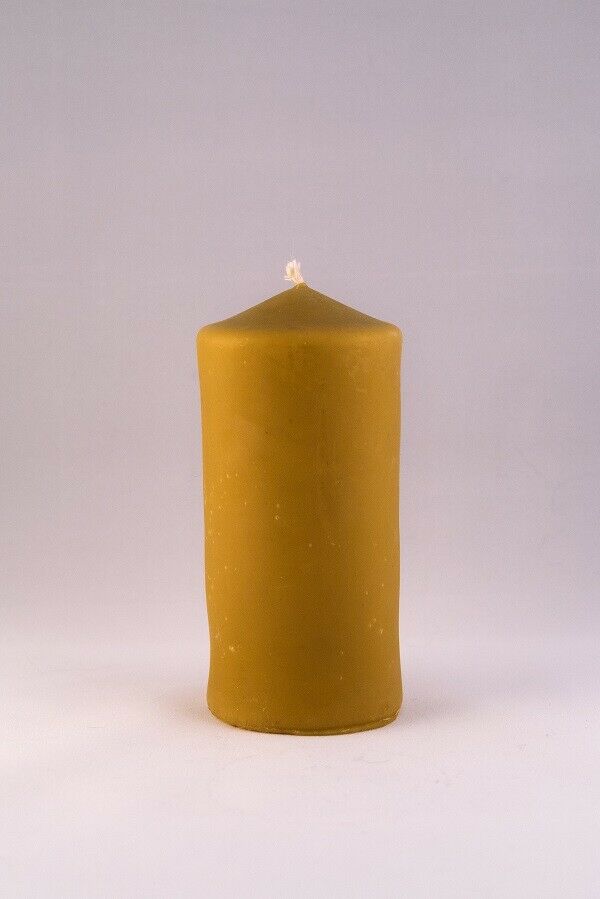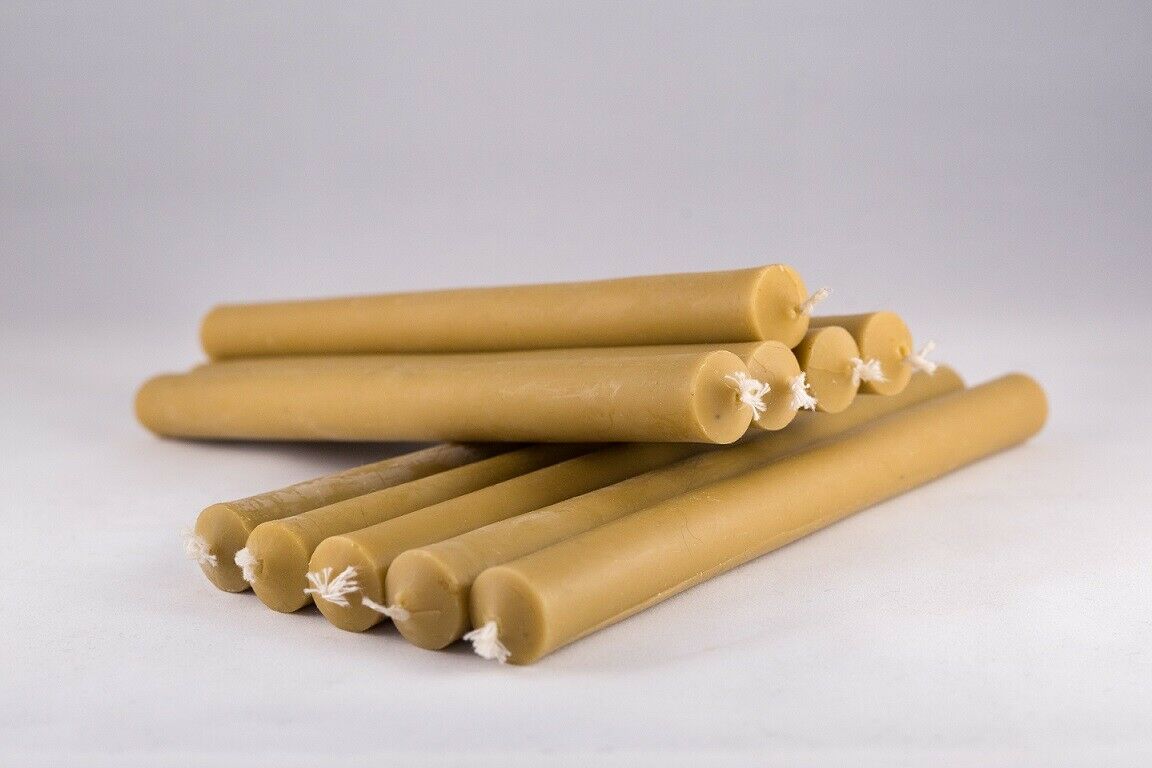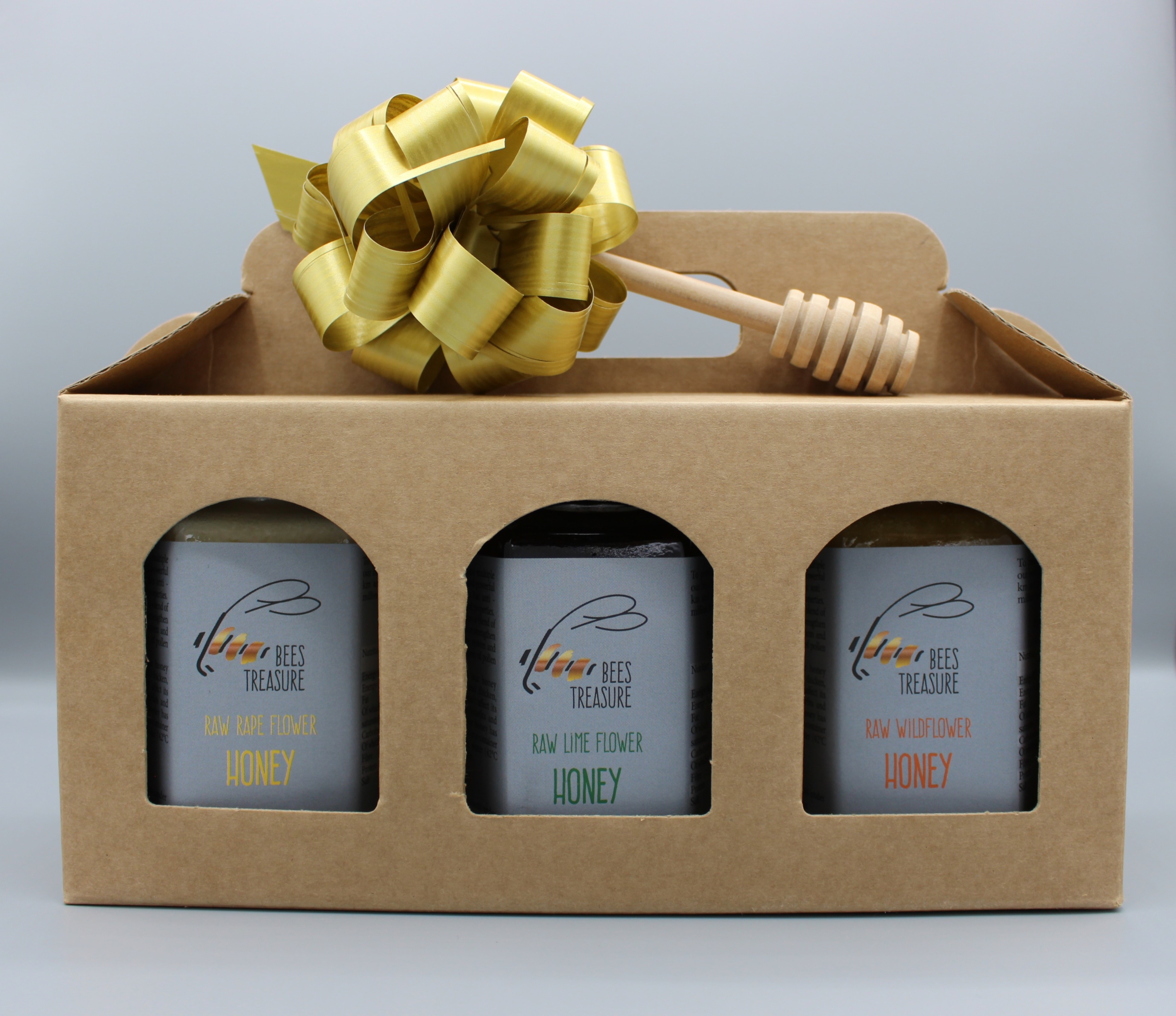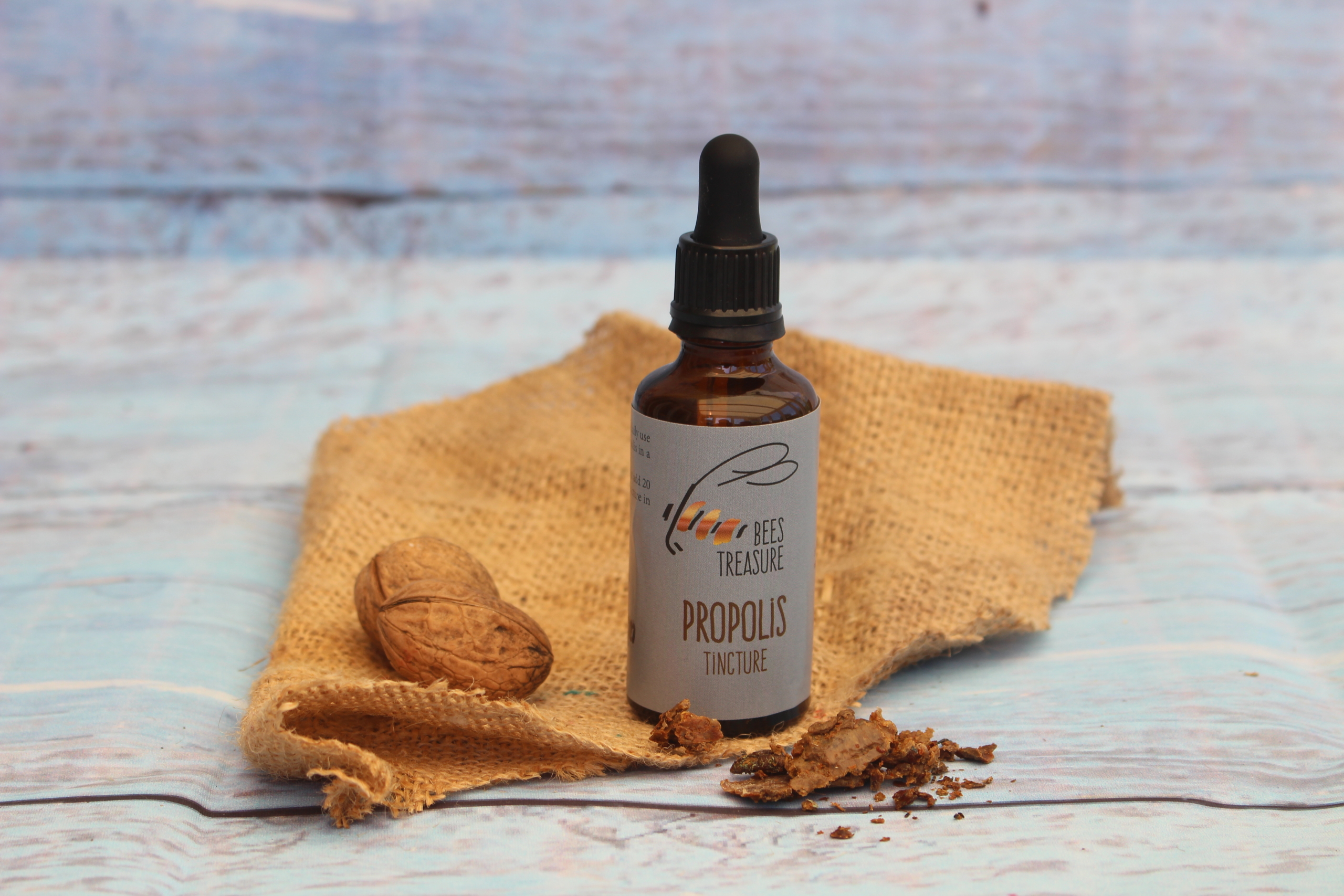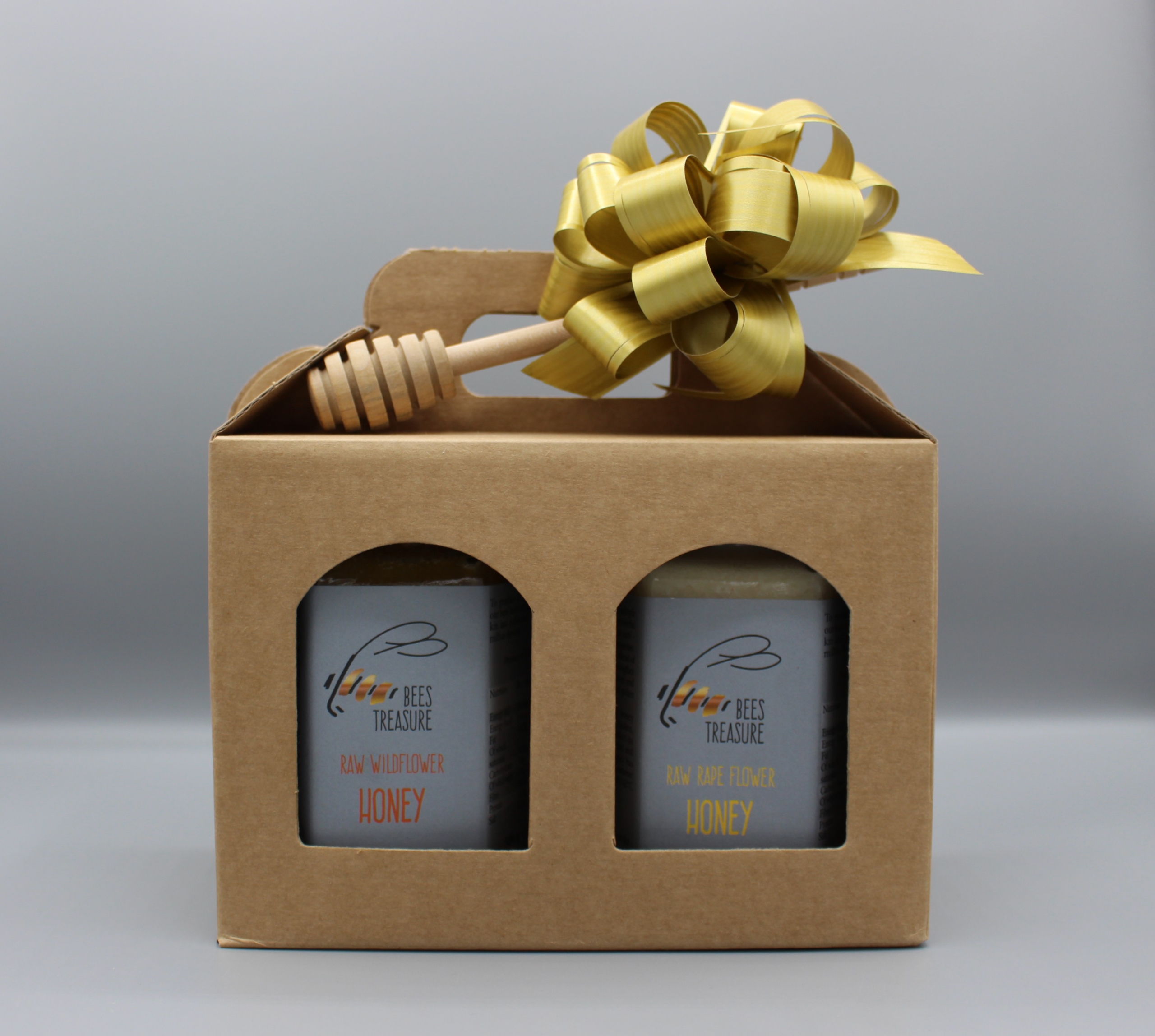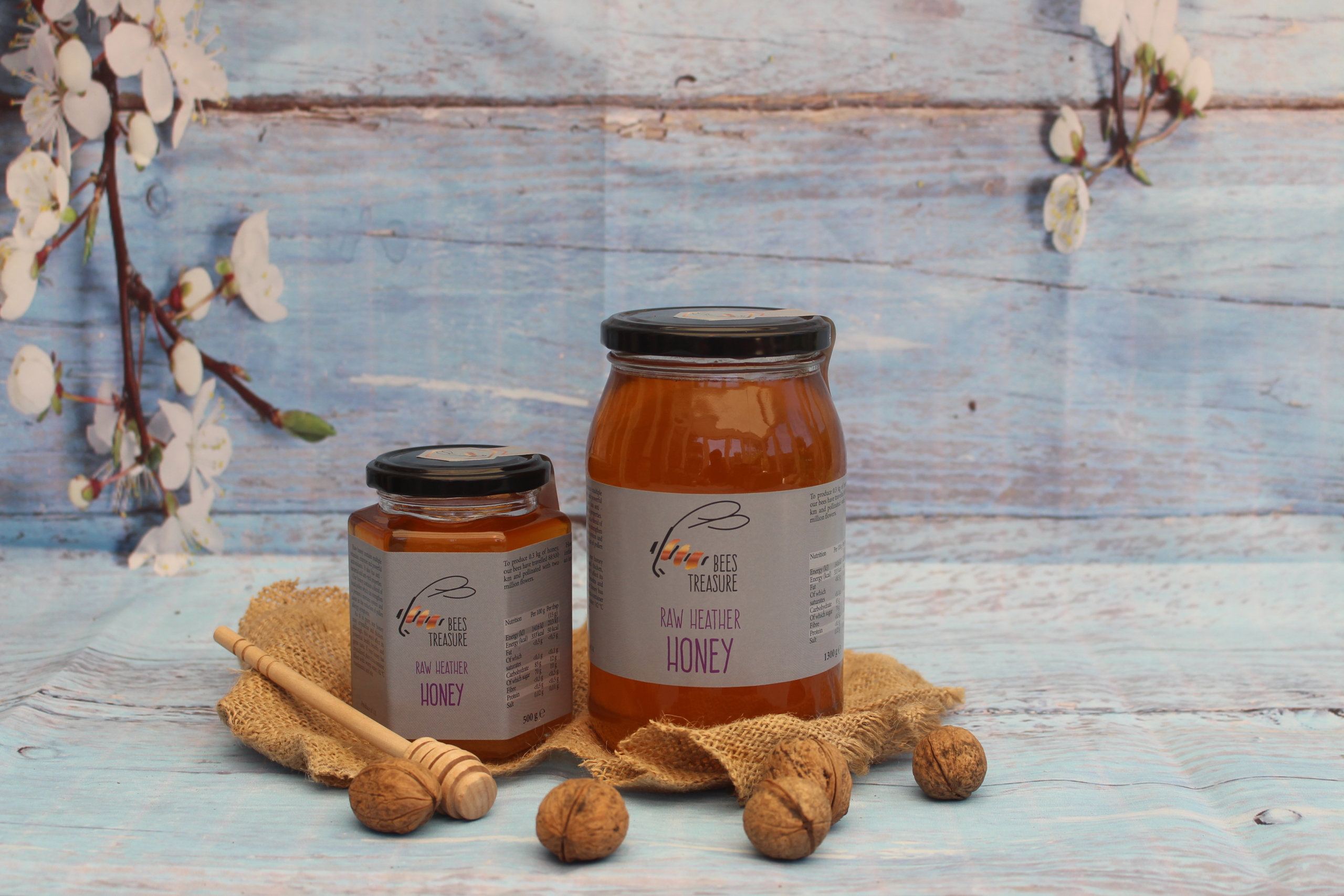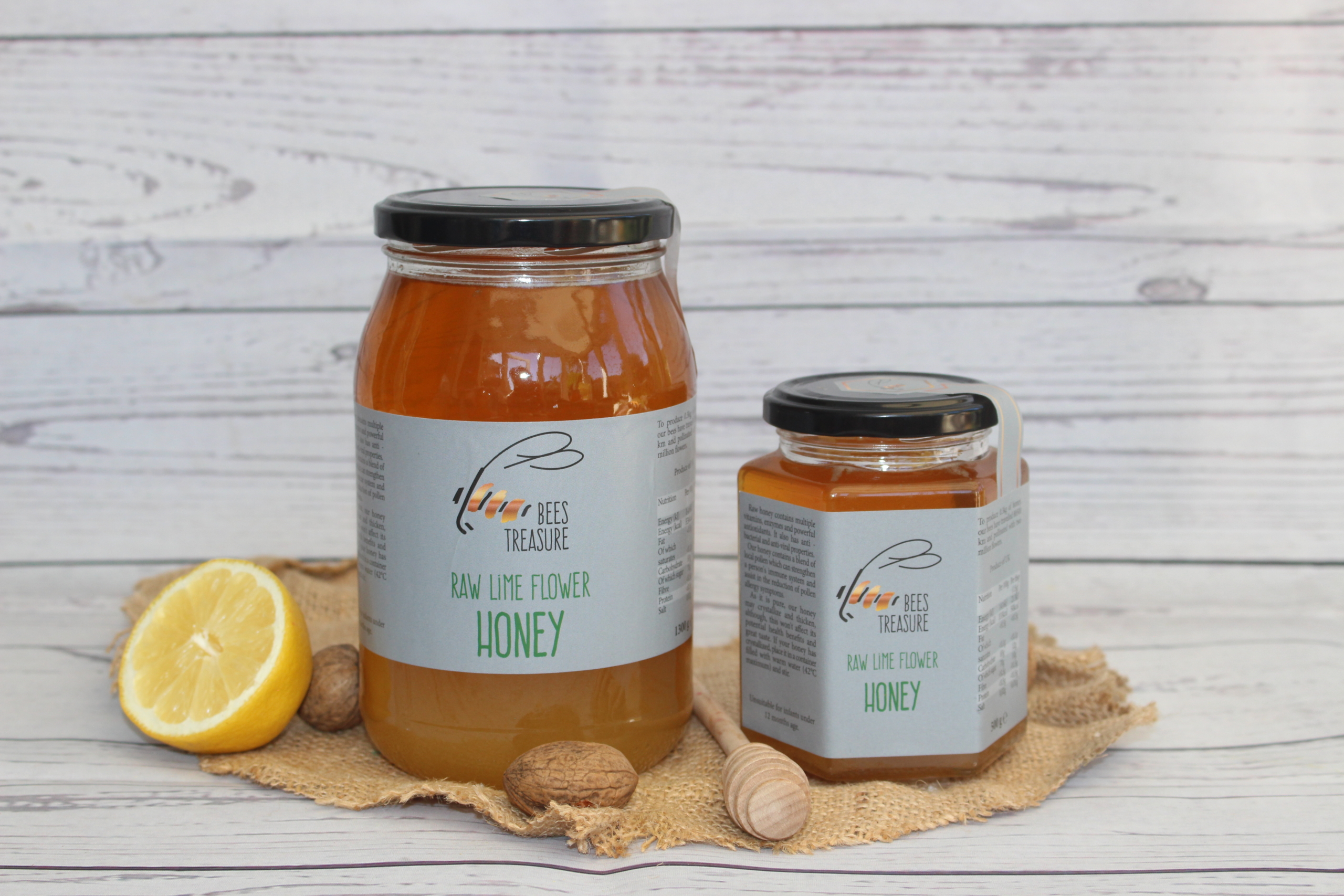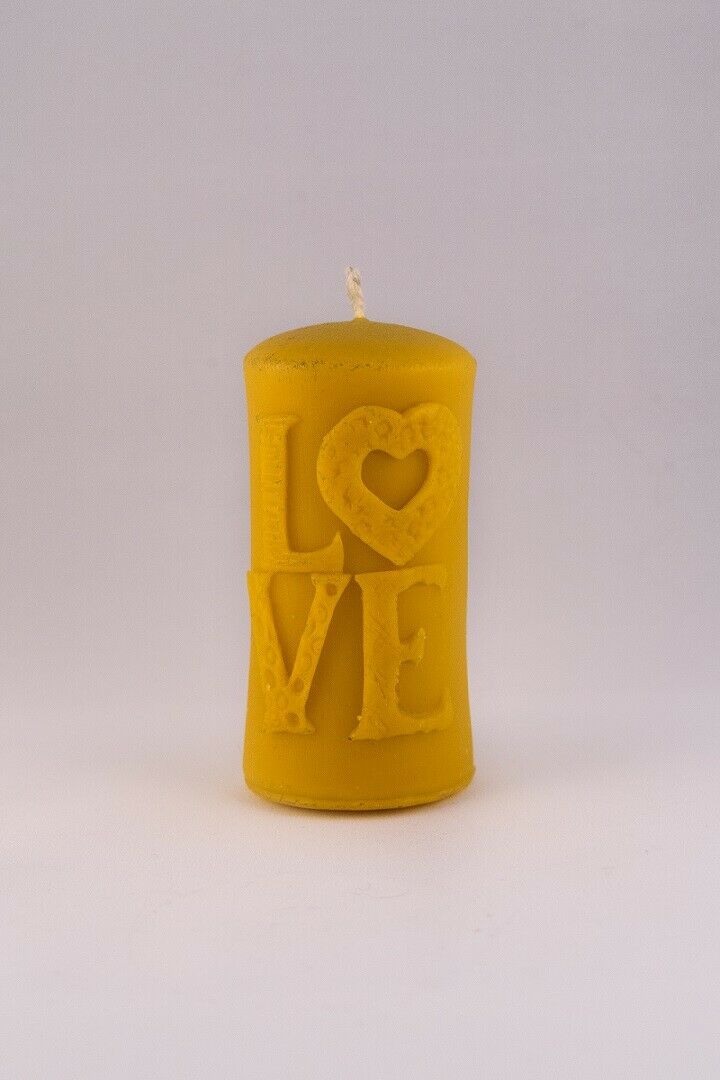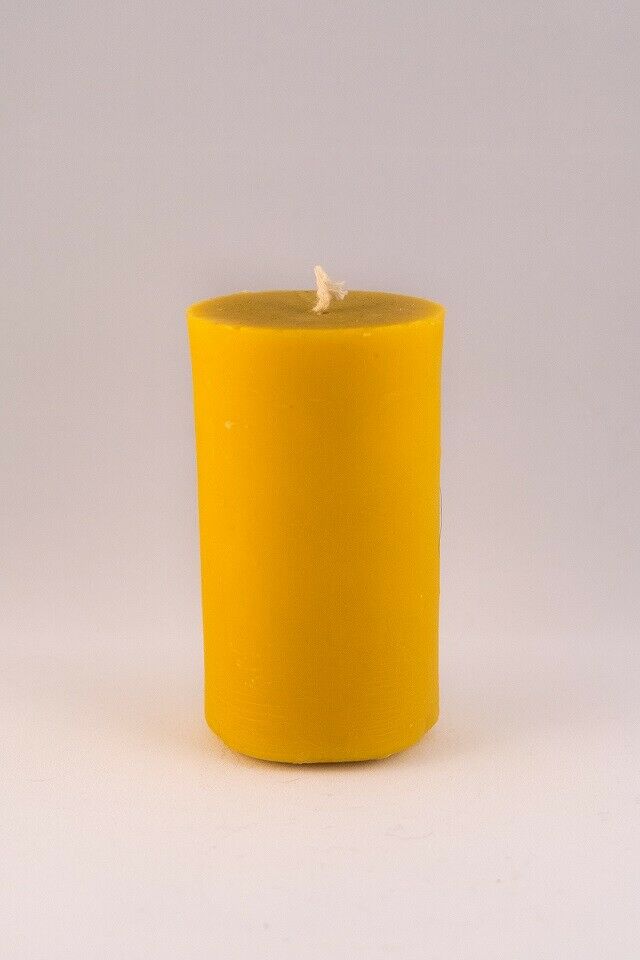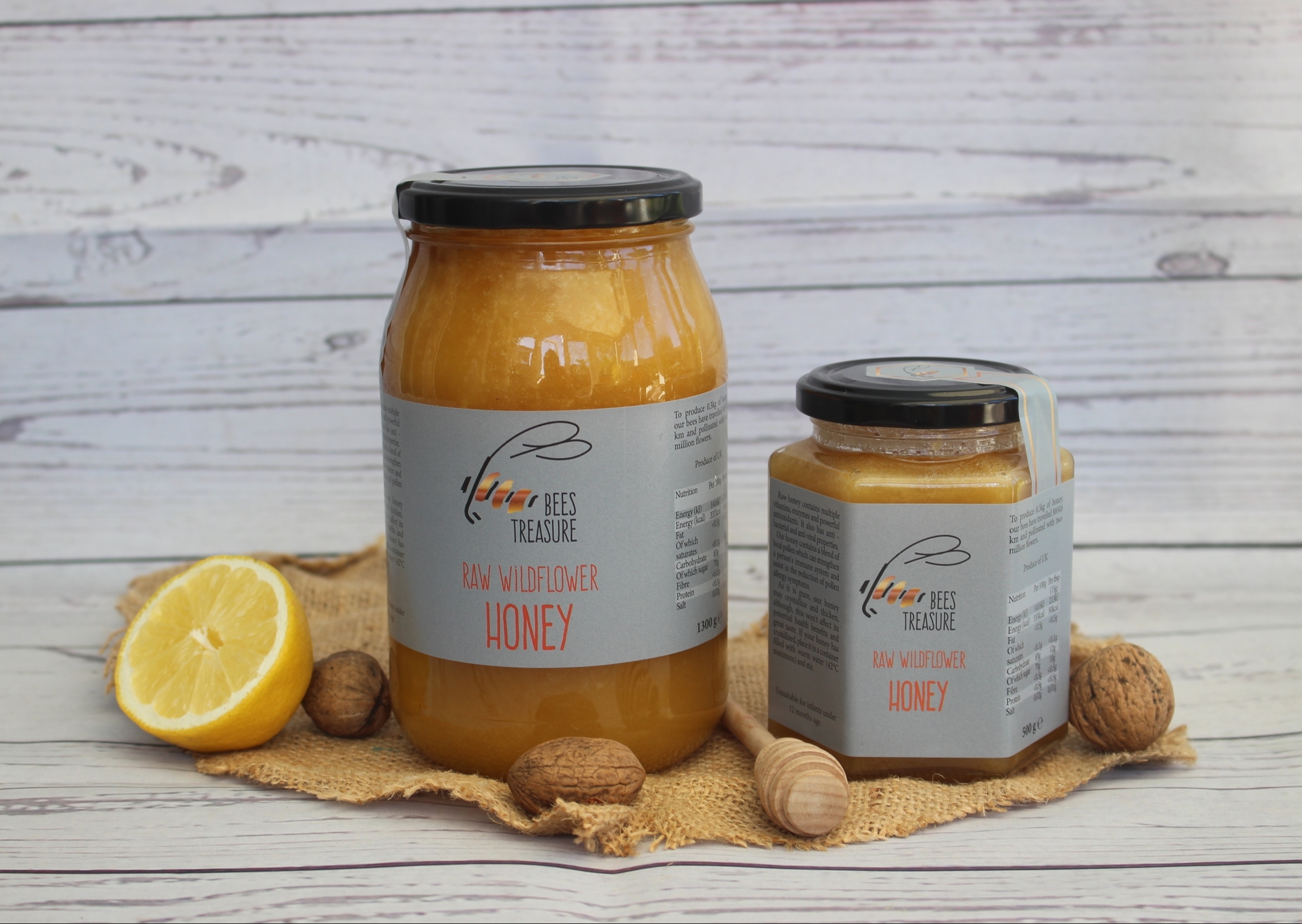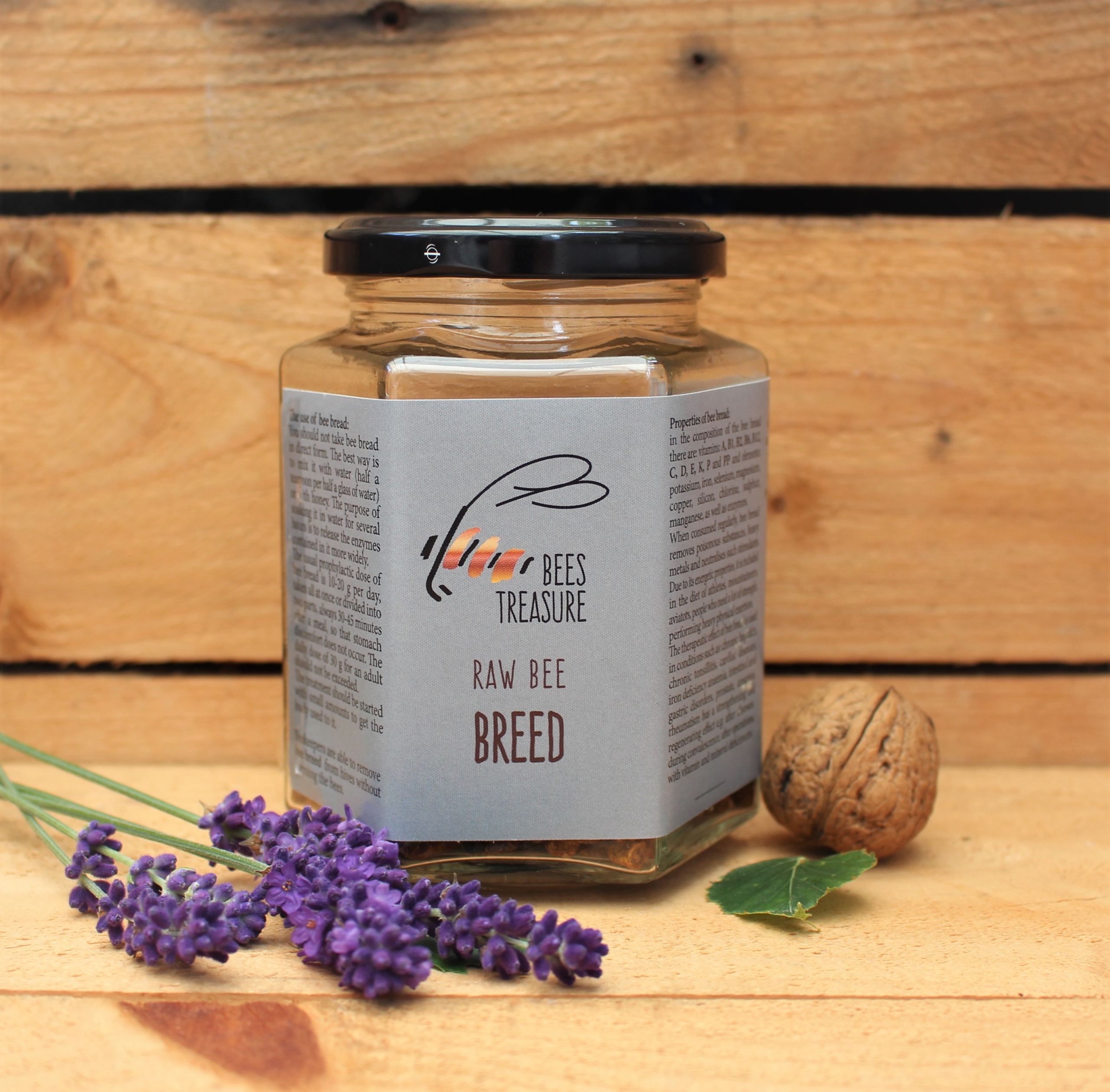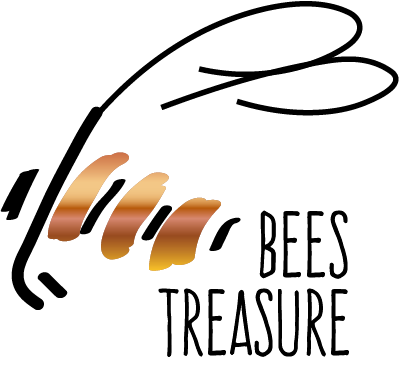Bee pollen
What is bee pollen?
Bee pollen is a plant product, collected and partly processed by bees. It is a mixture from various plants, hence its multidirectional effect. As it is processed by the bees and stored in combs, it is called bee bread and apart from the honey itself, it is the basic protein food of the bee colony.
The bees collect the pollen from the flowers, mix it with a little honey, nectar or saliva and carry it to the hive in the form of shaped balls or pellets in special baskets on their hind legs. The pollen in the form of pellets is called bee pollen. The pollen brought into the hive is used for current food needs and reserves,which are built up for the period when bee pollen is scarce in nature. Fresh bee pollen is stored in cells, whisked away and covered with honey. Fermentation takes place.
Some of the bee pollen can be captured by the beekeeper using pollen catchers. It is then dried, frozen or otherwise preserved. It is a valuable nutritional and medicinal product.
The nutritional and therapeutic properties of bee pollen are the result of its very rich chemical composition, with over 250 different chemical compounds identified.
Bee pollen is the male reproductive cell of flowers, carrying the male gene to the female gene, essential for the reproduction of all higher plants. Particular plants produce different types of pollen with various structures and properties. Bee pollen contains a full set of amino acids, carbohydrates about 70%, sterols, numerous vitamins, EFAs, macro- and microelements and organic acids 14%.
EFAs – Essential Fatty Acids are a group of fatty acids which cannot be synthesized in the body and must be provided in food, as opposed to endogenous acids. A diet poor in essential fatty acids can lead to disease. From these essential fatty acids, the human body can synthesise other fatty acids it needs.
Properties and uses of bee pollen:
- Nutritional, strengthening, mood-enhancing, energizing agent
- Regulates intestinal function, has anti-inflammatory properties
- Stimulates appetite in children
- Improves metabolism, fat metabolism, especially rapeseed and lime pollen
- Increases immunity
- Protects against the effects of hypoxia
- Lowers cholesterol levels
- Has a positive effect on inflammation of the prostate gland
- Improves absorption of iron
- Protects the liver from harmful effects of toxins
Chemical composition
Bee pollen contains mostly protein, then sugars and starch, there are also such components as fibre, fats, minerals, salt. Due to the presence of all vitamins in bee pollen, it is called a vitamin bomb. The bee pollen protein contains 32 amino acids, including all the essential ones. From the fat fraction, 9 to 31 fatty acids were isolated depending on the species of the plant. Biologically active substances such as enzymes, hormones and essential oils have also been found in the bee pollen.
Properties
The rich composition of bee pollen makes it an irreplaceable, natural regenerating and strengthening nutrient. The beepollen treatment improves condition, enhances mental efficiency and has a beneficial effect on immunity. The bee pollen is known to have a curative effect in cases of problems with the prostate gland, seminal vesicle and urethra. This bee product is recommended for people after heart attack, people with atherosclerosis, with digestive and metabolic disorders, in menopause. The bee pollen also alleviates old age ailments, gives good results with underweight, hair loss, brittle nails, and can serve as an antidote for poisoning with some synthetic drugs. It can be used in the treatment of allergic diseases. Bee pollen or bee pollen-honey masks are recommended for girls.
ATTENTION!
A contraindication for the use of pellet is an allergy to this product. Individuals who are allergic to bee pollen, such as those with hay fever, can use the pollen treatment, as this condition is not synonymous with an allergy to bee pollen grains, which is rare. Bee pollen treatments are not recommended for women in the first trimester of pregnancy.
